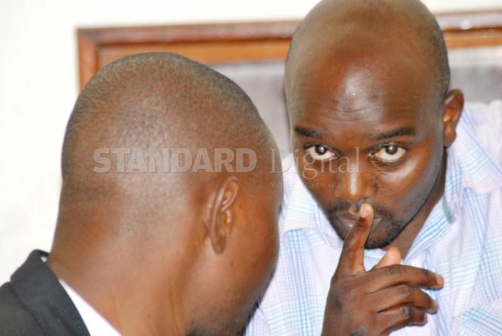×
The Standard e-Paper
Stay Informed, Even Offline

The arrest of several bloggers in the past couple of weeks has sparked debate on social media regulation. Law enforcers have recently picked up and grilled close to ten bloggers over content posted on their social media accounts.
Those interrogated recently include controversial blogger Robert Alai, Cyprian Nyakundi, Patrick Safari popularly known as ‘modern corps’, Eddy Illah, Charles Dienya, George Nyongesa and Yassin Juma.